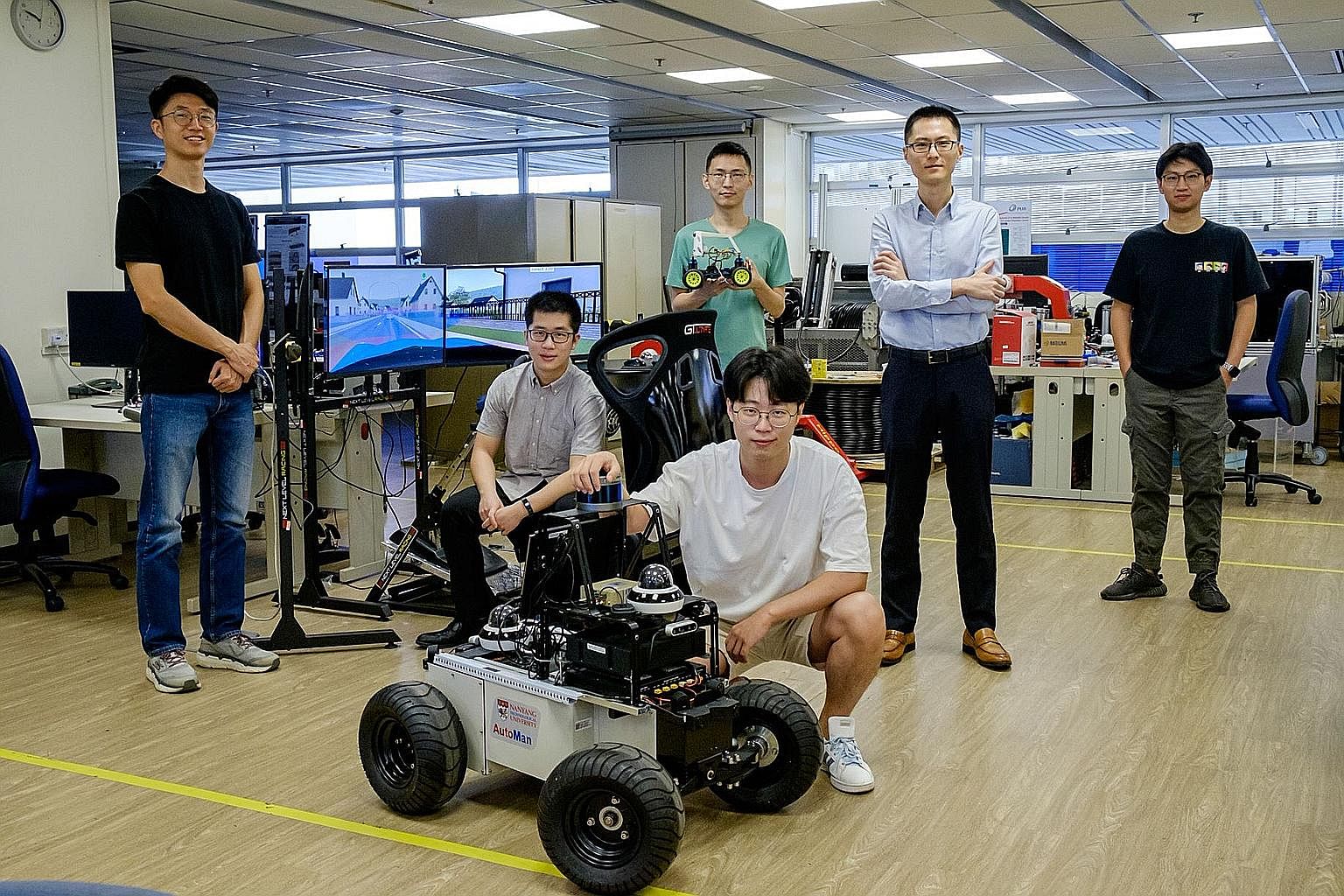SINGAPORE - Roboticists from Nanyang Technological University (NTU) who developed an algorithm capable of predicting a vehicle's position eight seconds into the future clinched two awards at a competition organised by Waymo, an autonomous driving technology development company from the United States.
The Waymo Open Dataset Challenges, in its second edition this year, saw the participation of over 70 teams from top institutions such as the University of California, Berkeley, as well as artificial intelligence company Xilinx in the US and Chinese vehicle manufacturer Leapmotor.
Waymo is a subsidiary of Alphabet, the parent company of Google.
The NTU team, comprising Assistant Professor Lyu Chen and his PhD students Mo Xiaoyu and Huang Zhiyu from the university's School of Mechanical and Aerospace Engineering, came in first in the interaction prediction category where no runner-ups were named, and second in the motion prediction category behind a team from Beijing's Tsinghua University.
In both categories, participants had to develop software algorithms to analyse 574 hours of real-world traffic data provided by Waymo. This data related to pedestrians and cyclists, as well as vehicles.
In the motion prediction category, the algorithms had to predict where a road user would be eight seconds into the future, based on the trajectory in the past one second. In the interaction prediction category, the algorithms had to do the same but also take into account two road users' interaction with each other.
Winners were selected using a series of metrics that measured how accurately the predictions matched up with the real-world data.
Two other categories, real-time 3D detection and real-time 2D detection, were also open to contestants, but the NTU team did not take part in these.
In a virtual presentation on Monday (July 26), Prof Lyu said such traffic predictive technology can help improve road safety by anticipating accidents in advance.
"The interaction between road users is very complex. By accurately predicting vehicles' motions, we can help self-driving vehicles make better decisions in driving safely, such as performing defensive driving manoeuvres to avoid collisions with other traffic," he said.
Prof Lyu and his team plan to test their technology on real vehicles at NTU's Centre of Excellence for Testing and Research of Autonomous Vehicles (Cetran), which assesses self-driving vehicles in a simulated tropical urban environment.

Their aim is to eventually integrate the technology into larger vehicles such as the NTU-Volvo self-driving electric bus, which can take up to 80 passengers and has been on trial at Cetran since 2019.
But there are challenges to be tackled before the technology can be fully implemented in the real world, said Prof Lyu.
"One big limitation is that we need more data. In real life, nearly countless scenarios happen on a daily basis, so we need to continue collecting more data to improve the accuracy of the algorithm."

